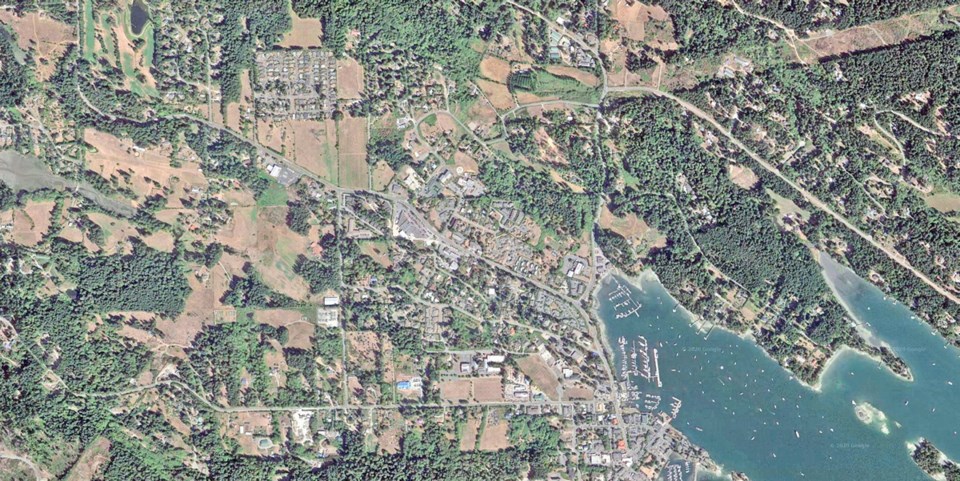A commentary by a housing advocate on Salt Spring Island.
A recent commentary might make Times Colonist readers think the beautiful and protected Gulf Islands are about to be destroyed by an unlikely villain — affordable housing advocates.
“Development has put Gulf Islands in death spiral” wasn’t a very subtle headline. The writer is well-known on our idyllic but argumentative Salt Spring, and his favourite target of late is the affordable housing “lobby” that is set to ruin his little slice of paradise.
I am one of those housing advocates, so allow me to provide a more complex picture of the pressures impacting both the island’s population and its ecology.
Frants Attorp and I, like most Gulf Islanders, share great concern for the twin crises in biodiversity and climate change. Where we differ greatly is on the local issues making things worse, and who gets to benefit from the solutions proposed.
Our volunteer advocacy group, Salt Spring Solutions, was formed three years ago when we saw multiple non-profit affordable housing projects in peril, largely due to NIMBY-driven community opposition. What most islanders didn’t know at the time (unless they had a more diverse social network) was how much our unique island culture and community were at risk under current trends.
The housing crisis here is not only about homelessness, but the hollowing out of the working and middle class: Teachers, health-care workers, grocery store clerks, those who serve and cook restaurant meals. What we now know as “essential workers.”
With more working people leaving the island each month, Salt Spring was on its way to becoming another Marin County, California, where the average house price is US$1.3 million and low-paid workers are forced to commute up to 90 minutes each way to service the wealthy.
What this does to a community’s resiliency, not to mention its carbon and ecological footprint, is what we’re trying to avoid.
The pressures contributing to our housing crisis are well known to coastal B.C. residents. Salt Spring’s explosion of Airbnbs and high home prices took away most longer-term rentals, while severe local bylaw restrictions on cottages, tiny homes, farm worker housing, or creative living arrangements long employed by farmers, artists and young people play a role in limiting supply.
Water is also a big issue — but one where conservation is only enforced on new housing stock, while no current homes are compelled to conserve, or capture, a drop.
Where might leadership come for solutions? Not our local government unfortunately. The unintended consequences of the otherwise visionary Islands Trust mandate means we essentially lack a local government that can relieve some of this pressure by buying land, raising funds, or offering incentives for rental or affordable housing.
Another unintended consequence of the Trust’s limited mandate is a loophole you can literally drive a mansion through. At any one time, hundreds of large, resource-intensive dream homes are approved to be built, with almost zero restrictions on their water use, energy efficiency, or forest protections. Clear-cut logging to create more single family estates abounds, and local forest campaigners have found to our horror the Trust has no policy tools to stop it.
If anything is ruining Salt Spring, it is the relentless pressure to build more mansions, far from town, on formerly forested lots.
So it’s a case of right problem, wrong villain.
Facing these pressures, our communities need to have a wider conversation around justice. I am a full-time climate change campaigner, and in the last decade our movement has gone through a much needed consciousness evolution to include a race, class, and privilege lens in our work.
When I worked on tar sands and pipeline campaigns I saw first-hand how those least responsible for the climate crisis were bearing its greatest costs. Our movement has — slowly, painfully, with always more to learn and do — moved towards putting justice into the heart of our analysis and the centre of our solutions.
But when I moved to Salt Spring seven years ago I was disappointed by the “conservation 1.0” mindset still dominant here. This way of thinking sees the ecological crisis clearly, but is largely blind to the fact that until we address interconnected issues of inequality and race, our solutions will likely perpetuate the same systems of oppression that got us into this mess in the first place.
This is the real work of climate justice, and the choices we make here and now matter.
Gulf Islands writer Michael Christie’s new dystopian novel Greenwood describes a future where the rich get to enjoy the last slices of wild nature guarded by private militias, while the rest of humanity suffers in polluted cities.
I don’t want to live in that world. Humans need to be part of the environmental solutions we come up with.
We can and must do better.



